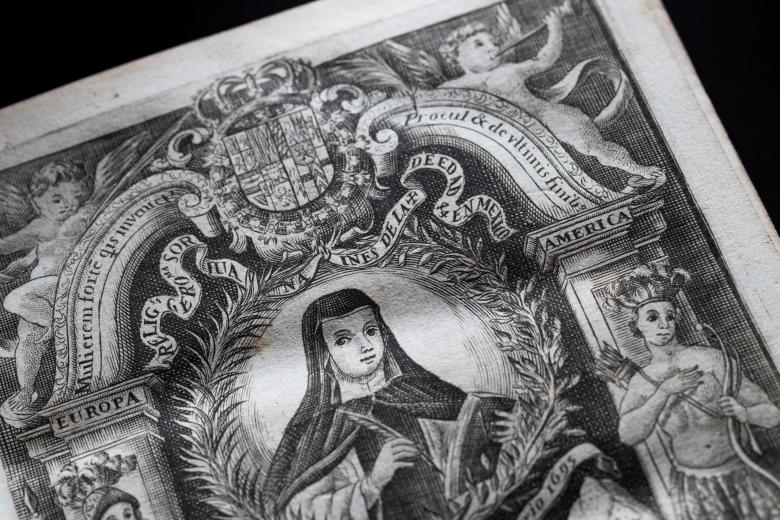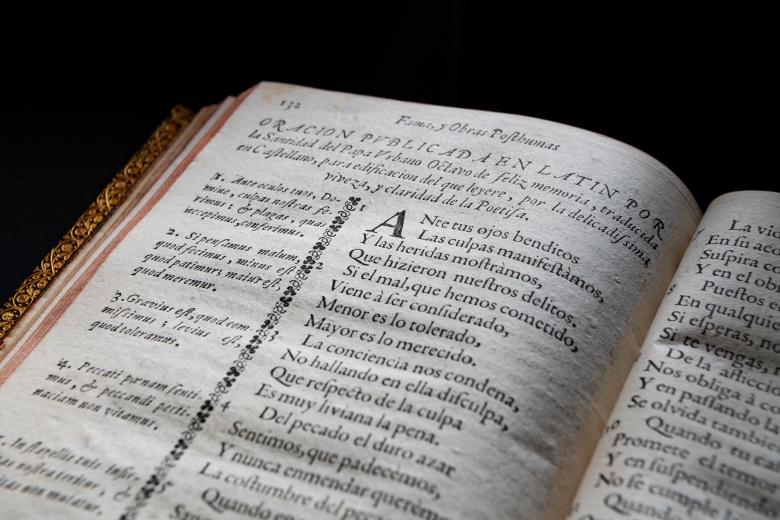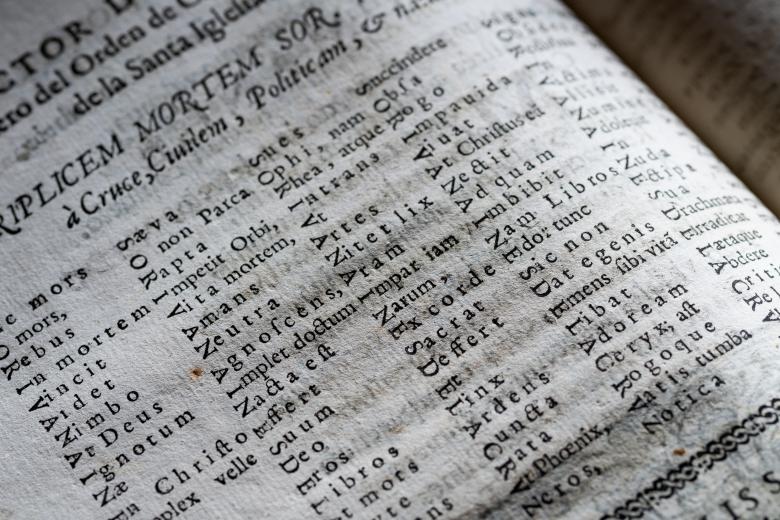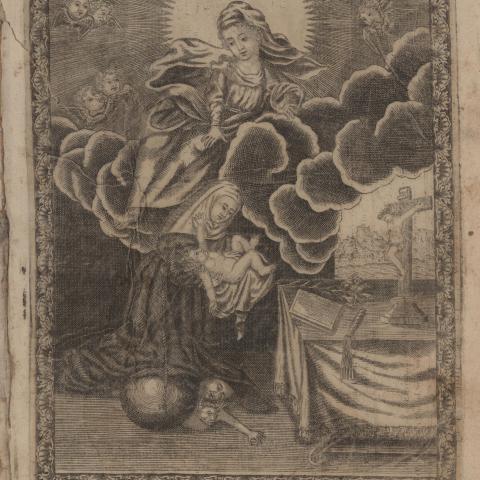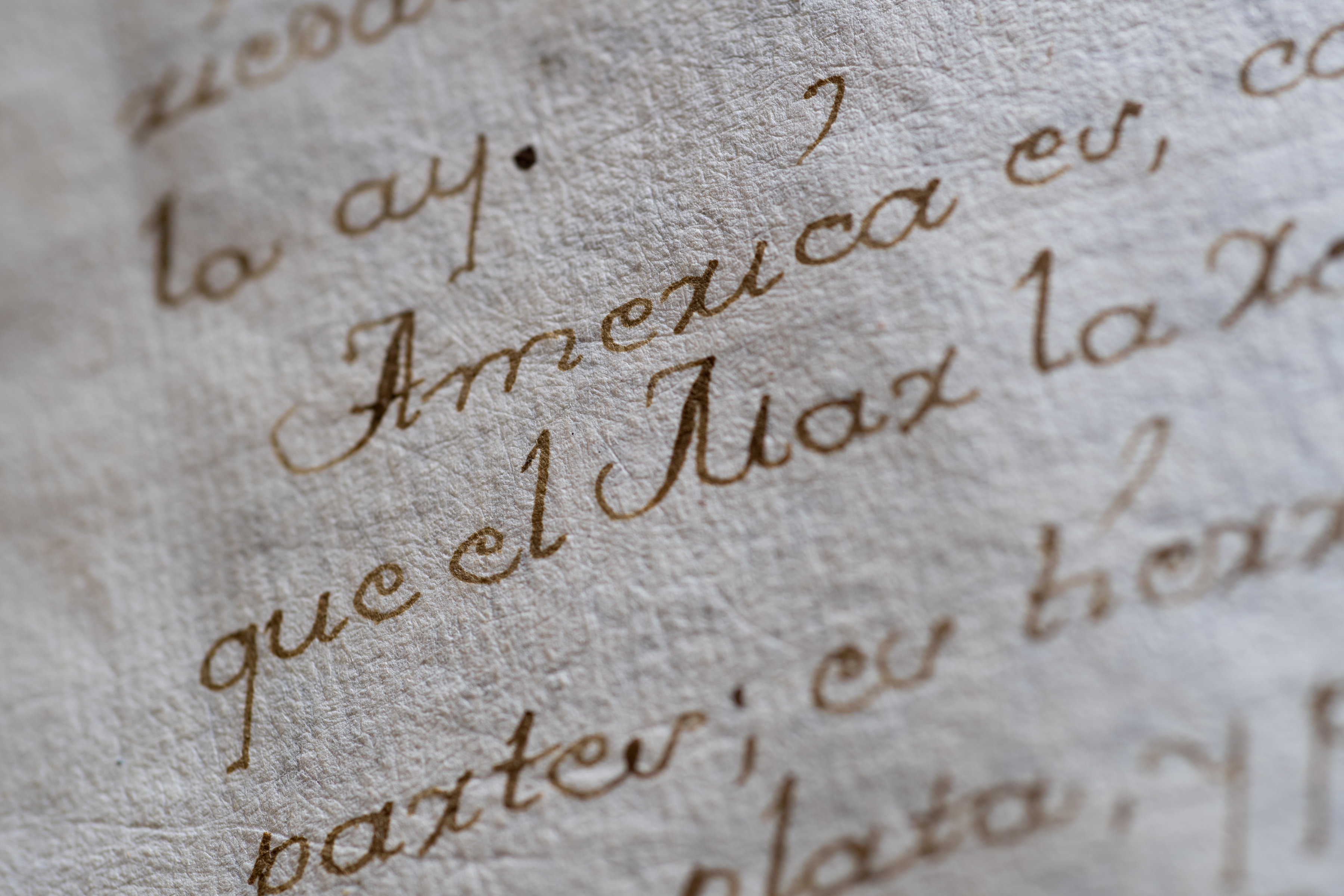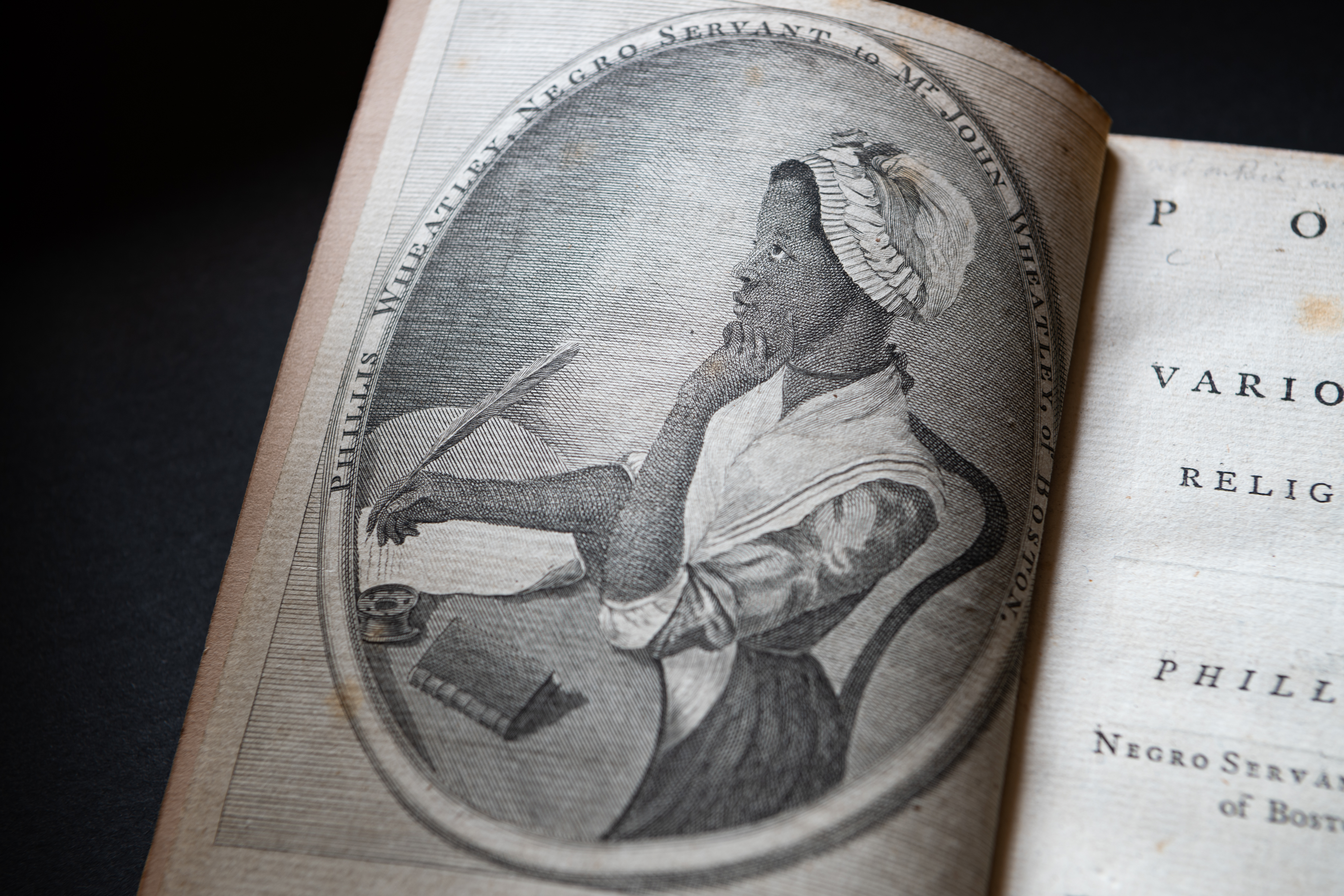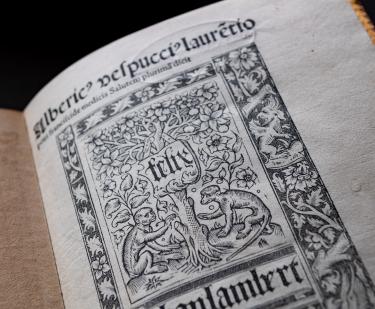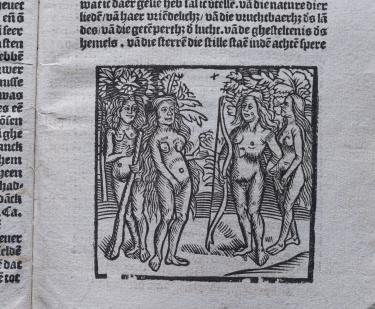Fama, y obras posthumas del Fenix de Mexico
Juana Inés de la Cruz (1648 –1695) was acclaimed for her intelligence and writing skills from a very young age, and received contemporary acclaim as “The Tenth Muse” and the “Mexican Phoenix’. Mostly known for her poetry, she also wrote plays, philosophical treatises and was interested in science, mathematics and music. She became a nun at the age of 21, in order to be able to read, study and publish. In her writings, Sor Juana protested against the rigorously defined relationship between genders, which got her in trouble with certain church officials. This posthumously published collection of her work, contains one of her most famous letters, an answer to the Bishop of Puebla in which she defends the rights of women to intellectual freedom. Because of this, Sor Juana de la Cruz is not only considered one of the most important Mexican authors, she is considered the first feminist of the Americas.
